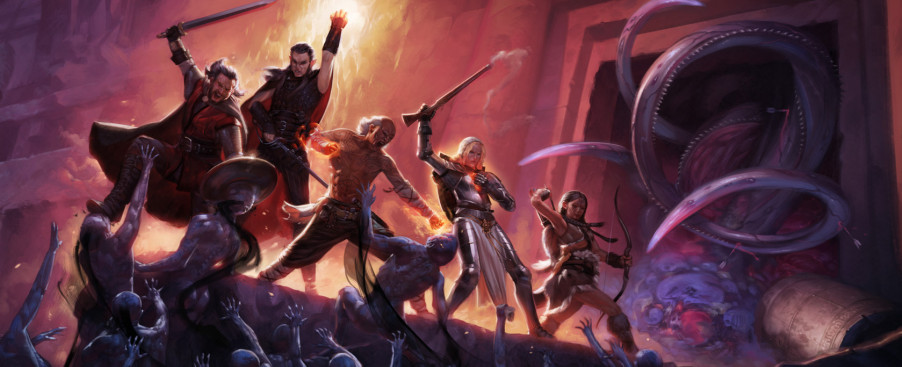Obsidian Entertainment Interview
-
Category: News ArchiveHits: 1535

The editors down at AusGamers managed to catch up with Obsidian Entertainment CEO Feargus Urquhart for a quick interview about the ongoing development of Pillars of Eternity, the success of South Park: The Stick of Truth, their recently announced Armored Warfare title, and more.
AusGamers: We've already heard quite a bit about Obsidian's marketing and distribution deal with Paradox for Pillars of Eternity and it seems like a good fit, so I won't probe too much on that topic, but just for our readers, can you explain what you perceive as the key benefits of that relationship for the game.
Feargus Urquhart: Well it's one of those things that. after the Kickstarter, our plan was to publish it all ourselves, and a lot of that was partly because we used to work for a publisher, and we sort of said '˜ok, we can figure it out', and we have friends that were in publishing, so '˜we'll kind of figure it all out'.
As we started to think more and more, it was like: you know what? What would make sense is if we could just focus on the development, and then have a publisher, in essence, do distribution and marketing -- not be a traditional publisher, but just do distribution and marketing -- well that would helps us. They could do the fulfillment for the Kickstarter, they could do this, they could do that, and it would let us just focus.
That's kind of how we started to really think about it. In particular, because. well I have to admit that I didn't fully think about it a whole lot until I was talking to [Inxile Entertainment CEO] Brian Fargo, and he mentioned that he was looking at doing something a little somewhat similar -- maybe not as much of a relationship -- with Koch/Deep Silver for Wasteland 2. So it came up and I started to think about it and talk with people about it.
...
AusGamers: Sequels and licensed titles have long been Obsidian's bread and butter, but with South Park out the door now, all of your currently announced projects are actually brand new IP. Does that represent a strategic change for Obsidian going forward?
Feargus: Ultimately, we want to make cool games. If you look at the licensed games that we've made, we're not like a movie license developers -- we don't just take something like a Transformers movie and make a game that follows the story, we always take a license and create a new story, and new characters and a new experience within that license, and that's making a cool game.
With an IP. that's interesting. We've worked on our own IP before, and there's definitely challenges with working on your own IP. But obviously when it comes to Kickstarter, this was our opportunity to create our IP and own it, which is very hard when you're making the bigger games with publishers, because if a publisher is going to give you 15, 20, 30, 40, 50, 60 million dollars to make a game, there is just the expectation that they're going to own that IP.
You may have some usage rights like right of first refusal to do sequels and stuff like that, but generally you're not going to own it. So that does actually sort of reduce your. I don't want to say desire to make original games, but you get to make a whole lot of stuff that you don't get to keep. That's where it's been really cool with Kickstarter, is that we've been making something that we get to keep.

